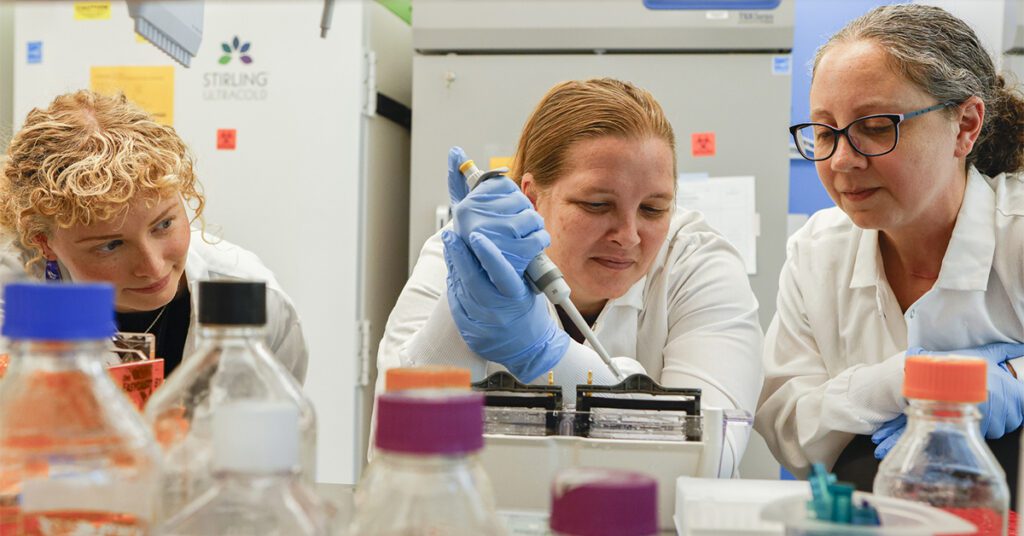Focus on inspiring and empowering AI/AN youth
Through RIPPLES, the SEP group will also develop and offer a new two-week summer program for American Indian/Alaska Native high school students to inspire and empower them to become the next generation of scientists, change makers and community health leaders. Details of the program are yet to be developed in partnership with community members.
“We hope to be able to start with a community convening so we can listen to what people would like to see in a program like this,” Chowning said.
The guiding idea is to introduce students to scientific research and community health in ways that are culturally relevant. For example, a culturally relevant research project might be one on cancer drugs developed from plant medicines traditional to AI/AN people or on a type of cancer that disproportionately affects AI/AN communities. Another important piece of the program will be mentoring from scientists and older students.
“In all our programs for young people, we are trying to introduce them to a variety of careers, role models and mentors,” Chowning said.
The AI/AN youth program, like all facets of RIPPLES, builds on Fred Hutch’s strong foundation of institutional support, scientific excellence and experience nurturing tomorrow’s biomedical researchers and scientifically literate citizens. Whether they are bound for a career in science or not, every student will be a user of healthcare systems and can benefit from seeing the importance of science and understanding the social determinants of health. For underrepresented groups in particular, the RIPPLES team hopes to be part of an ongoing shift toward scientific institutions that are more welcoming and more trustworthy, made up of researchers and staff who better reflect the diversity of our world.
Learn more about the Science Education Partnership.
SEP’s work is made possible in part by the National Institutes of Health (NIH): RIPPLES (R25GM154358), a Science Education Partnership Award (SEPA) from the National Institute of General Medical Sciences (NIGMS), and Pathways to Cancer Research (R25CA221770), a Youth Enjoy Science Award (YES/CURE), from the National Cancer Institute (NCI). The contents of this article are solely the responsibility of the SEP and do not necessarily represent the official views of the NIGMS, NCI or NIH.

